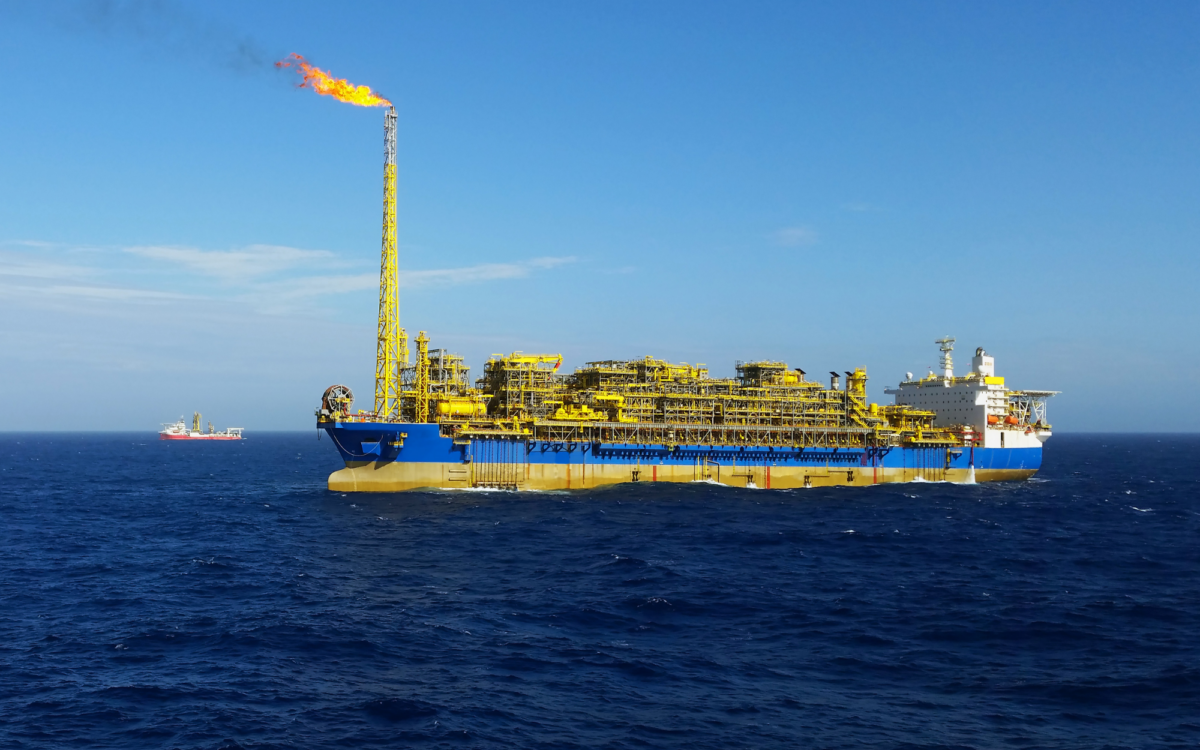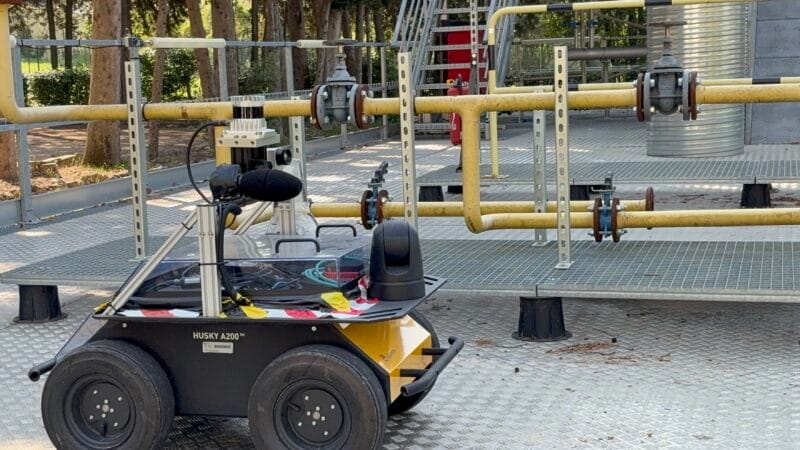Floating Production Storage and Offloading (FPSO) units are essential in offshore Oil and Gas operations, providing a complete solution for extracting, processing, and storing hydrocarbons from deepwater fields. Asset Integrity Management (AIM) systems are essential tools for ensuring the safety, reliability, and efficiency of these units. By managing an FPSO’s structure and systems, AIM prevents unexpected breakdowns and improves safety. This approach also reduces costs and optimizes performance, extending the operational lifespan of these facilities.
Understanding FPSOs
FPSOs are multifunctional vessels used in offshore oil and gas production. Their primary function is to extract hydrocarbons from subsea wells, process them onboard, and store the product until it can be offloaded. The key feature of an FPSO is its ability to combine production, processing, storage, and offloading in a single unit. This eliminates the need for separate offshore platforms or pipelines, making FPSOs especially useful in deepwater environments where building permanent infrastructure is not practical. Additionally, FPSOs are designed to resist extreme offshore conditions such as strong currents, high winds, and corrosive saltwater, which can challenge the lifetime of traditional platforms.
Why Are FPSOs Important?
FPSOs are important to the oil and gas industry because of their adaptability and cost-efficiency. Their mobility allows them to be relocated between fields, making them invaluable for temporary or remote projects where fixed platforms would be too expensive or impractical. This versatility reduces both setup costs and time, as FPSOs can be moved as new oil fields are discovered. Furthermore, their ability to integrate multiple functions – production, processing, and storage – into one vessel helps minimize operational expenses and logistical complexity. As offshore exploration moves further into deepwater and remote areas, the importance of FPSOs grows, as they enable companies to maintain production in even the most challenging environments.
Challenges in FPSO Operations
Due to the complexity of its systems and the extreme environments in which they operate, operating an FPSO can present a number of challenges that potentially impact efficiency, reliability, and safety. Operating an FPSO can present different challenges due to the environments in which they operate; operating an FPSO can present a number of challenges that impact efficiency, reliability, and safety.
Some of the principal challenges are:
- High operational costs: maintaining, staffing, and operating FPSOs in remote offshore locations is expensive.
- Time-consuming inspections: routine inspections might cause operational interruption due to their time and resource requirements.
- Operating downtime: FPSO operations may experience significant downtime when performing maintenance or completing repairs, resulting in lower output and higher expenses.
- Harsh environmental conditions: Offshore environments expose FPSOs to extreme weather, corrosive saltwater, and powerful ocean currents, all of which accelerate wear and tear.
- Complex maintenance: Due to their location and technical complexity, maintaining FPSO systems and structures can be more difficult than onshore assets.
- Safety and regulatory pressures: FPSOs must adhere to strict safety regulations, and any failure to meet these standards can lead to costly fines or operational suspensions.
Overcoming challenges in FPSO Operations
FPSO operations face a variety of challenges due to their complex systems and harsh offshore environments. However, by leveraging modern technologies and proactive management strategies, these challenges can be effectively mitigated. Here are some common solutions that help operators overcome these challenges.
- High operational costs: By using predictive maintenance and real-time monitoring, operators can optimize maintenance schedules, reduce unnecessary repairs, and lower overall costs.
- Time-consuming inspections: Remote monitoring and advanced technologies such as advanced monitoring tools, inspection robots or drones allow inspections to be carried out without stopping operations, reducing the time and resources typically required for traditional inspections.
- Operating downtime: Predictive Maintenance, Risk-Based Inspections (RBI), and Reliability-Centered Maintenance (RCM) programs help identify potential issues before they become critical, allowing for planned maintenance during optimal periods and minimizing unplanned downtime.
- Harsh environmental conditions: Continuous monitoring detects early signs of corrosion, wear, or damage caused by extreme weather, enabling timely intervention to prevent more serious issues and prolong the lifespan of the equipment.
- Safety and regulatory pressures: Detailed tracking of inspections, maintenance, and repairs ensures compliance with safety regulations, helping operators avoid penalties and maintain smooth operations.
Optimizing FPSO Operations with Asset Integrity Management (AIM)
Asset Integrity Management (AIM) systems offer solutions to manage the safety, reliability and integrity of FPSO operations by implementing modern technologies that enhance efficiency and reliability. Cenosco’s Integrity Management System (IMS) incorporates continuous monitoring tools that collect real-time data on an FPSO’s structure and systems. This insight allows operators to detect issues such as corrosion, mechanical wear, or system malfunctions early, preventing minor problems from escalating into major operational failures.
If you’re looking for a comprehensive asset integrity management solution to optimize your FPSO operations, Cenosco’s IMS suite offers unified solutions tailored to your needs. Our systems, including IMS PEI (Pressure Equipment Integrity), IMS SIS (Safety Instrumented Systems), and IMS RCM (Reliability-Centered Maintenance), work together to ensure the safety, reliability, and efficiency of your assets.
- IMS PEI (Pressure Equipment Integrity) helps monitor and maintain the integrity of critical pressure systems, detecting early signs of corrosion or mechanical issues, reducing the risk of leaks or failures, and ensuring regulatory compliance for pressure equipment.
- IMS SIS (Safety Instrumented Systems) ensures that safety-critical systems are regularly tested and maintained, providing fail-safes for operations.
- IMS RCM (Reliability-Centered Maintenance) optimizes maintenance schedules by focusing on the actual condition of equipment rather than fixed intervals.
These practices are essential when it comes to the smooth operation of an FPSO, where unplanned downtime, safety risks, and equipment failures can have significant operational and financial consequences. By integrating these solutions, operators can enhance efficiency, reduce risks, and maintain compliance, ensuring that their FPSO units perform at peak capacity, even in the most challenging offshore environments.
One of the key advantages of Cenosco’s IMS is its proactive approach to maintenance. Rather than relying on scheduled stops, IMS enables continuous monitoring and predictive insights, allowing inspections and minor repairs to be performed without interrupting operations. This ensures that maintenance is conducted based on actual equipment conditions, reducing both the possibility of unexpected failures and unnecessary operational costs. By addressing potential issues early, IMS helps operators avoid costly downtime and maximize asset lifespan.
Interested in learning how Cenosco’s IMS can help you master your FPSO operations? Fill out the form and book a meeting with us today!
Want to learn more about IMS?
Request a demo below to get a first-hand look at its capabilities!





